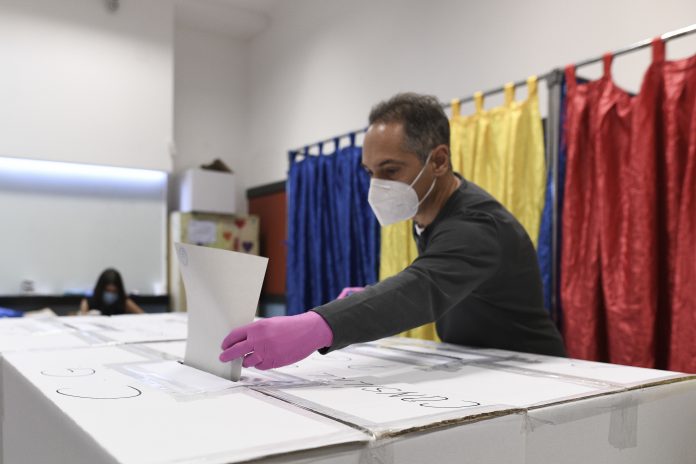Romanians were voting Sunday in a national ballot that reform-minded incumbents hope to win so they can form a majority in Parliament and rebuild investor confidence.
Prime Minister Ludovic Orban Liberal Party has a slight lead of the opposition Social Democrats which controls Parliament, but the result will also depend on turnout.
Voter turnout was low with less than 17% of the electorate casting their ballot in the first seven hours of voting, more than three percent lower than the 2016 parliamentary elections.
Prime Minister Orban urged Romanians to vote and said the risk of getting infected in a voting booth was low. „I voted for Romania’s development, for a dynamic, modern, confident Romania which is internationally respected,” he said.
„I voted for substantial reforms, for a clear Euroatlantic direction, for a development plan that allows Romania to make the leap forward it deserves.”
If the Liberals win on Sunday, they are expected to seek a governing coalition with the progressive Save Romania Union-Plus party, which is polling less than 20%.
The Liberals need more than 35% turnout to ensure a clear win and have the upper hand in a post-election coalition.
There are about 18 million Romanians are eligible to vote, but turnout was expected to be lower than average because of voters’ fear of contagion.
The Liberals have campaigned on a promise to bring the East European country closer to the European mainstream following years of fiscal populism and political instability and invest in the run-down health service.
The 57-year-old prime minister said he would scrap a 40% pension hike approved by the left-leaning Social Democrats and their allies which would push the deficit to 11% of GDP and undermine investor confidence.
Romania is set to end 2020 with an economy that has shrunk by 4.2 per cent and a deficit of over nine percent of Gross Domestic Product.
The Social Democrats, which have dominated politics since communism ended. were ousted in a no-confidence vote in Nov. 2019.
The populist, left-leaning party has won back some support in recent months due to coronavirus fatigue with and restrictions that have hit farmers and small businesses. Their supporters include rural voters, the elderly and European skeptics.
The Save Romanian Union-Plus group which first entered Parliament in 2016 is a mix of mainly younger people seeking to reform the clannish and non-transparent style of politics.
Less conservative than the Liberals, they share some values such as a pro-market and pro-European outlook.


















